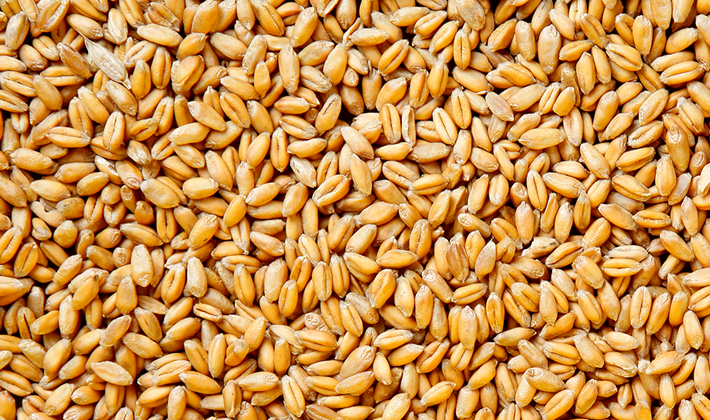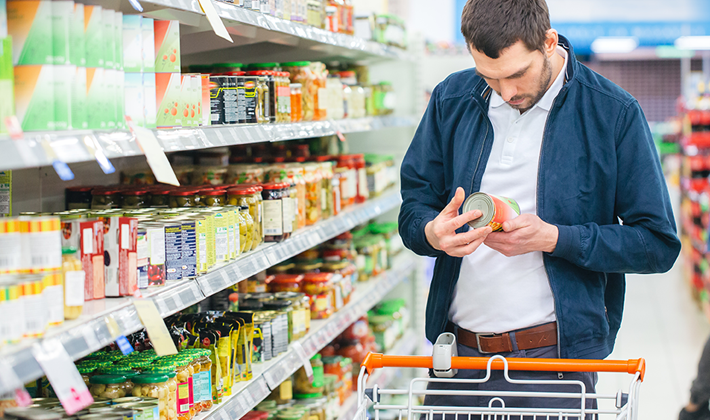Food labelling is an important means of providing essential information to consumers. This includes details on a food’s ingredients, composition, durability, storage and preparation requirements, any safety related information and identification of the manufacturer.
Detailed rules are laid down in law on what food information must be declared on product labels and how it must be given. There are also general rules on providing voluntary information (e.g. marketing claims).
A significant amount of food information is already required by law, and demand on label space is high, therefore should be kept to essential aspects. Additional information relevant to different consumer groups can be provided voluntarily, either on the label or more increasingly via other digital channels.
Updates & milestones
Science for Sustainable Agriculture Consumer Research on How natural is our food, and what does 'natural' mean anyway?
In July 2022, Science for Sustainable Agriculture published the findings of recent consumer research to establish a representative snapshot of public and consumer attitudes towards scientific intervention in agriculture and food production, and particularly to establish how much people understand about where their food comes from, and how much scientific innovation goes into its development and production (press release).
The results, detailed in full in the report entitled ‘How natural is our food, and what does ‘natural mean anyway?’ reveals a lack of knowledge – even among self-identified ‘foodies’ - as to the true provenance of many of our familiar food crops, and the transformational changes they have undergone in order to be grown in the UK. The research highlights the need for more effective communication about the role of science in food and agriculture, and raises serious questions about the validity of current public discussions around issues such as precision breeding, when most consumers appear unaware of the level of scientific intervention which has already gone into the development of our everyday foods.
“There is a clear understanding among consumers of the many challenges facing our food supply, and the need for urgent action to tackle those challenges. As the world gets hotter, and people get hungrier, more effective communication about the role of science in food and agriculture, delivered by trusted sources, using the right language and terminology, will be absolutely critical.”
[Fellow SSA advisory group member, science communicator Dr Julian Little]

Health and Care Bill: Food Information for Consumers – Powers to Amend Retained EU Law
On 23 February 2022, DHSC updated its policy paper titled “Health and Care Bill: food information for consumers – powers to amend retained EU law”. This explains how the government plans to introduce new powers that enable the Secretary of State in England, and Ministers in Wales and Scotland, to amend retained Regulation (EU) No. 1169/2011 and introduce new food and drink labelling and presentation requirements, applicable to their relevant territories, whilst ensuring changes introduced via this power are debated and approved before implementation. [Health and Care Bill status]
This power will support ministers to deliver on the government’s ambitions to tackle obesity by introducing improvements to food labelling requirements, subject to the outcome of relevant consultations. It will also help ministers deliver on wider government objectives including options to deliver on the forthcoming food strategy White Paper, which sets out government ambitions and direction for food system transformation.
Defra guidance on food labelling: Giving food information to consumers
UpdateThis guidance informs business on the food information that must be provided on food products to comply with labelling legislation: Food Information Regulations 2014 (FIR) and the EU Food Information to Consumers (FIC) Regulation No 1169/2011.
Being a devolved responsibility, general food labelling policy lies with the Department for Environment, Food & Rural Affairs (Defra) in England, Food Standards Agency (FSA) in Wales and Northern Ireland, and Food Standards Scotland (FSS) in Scotland.
Further information for members is also available via the FDF Food Labelling Toolkit
News
Receive updates on this topic
Want to keep up to date on this topic?
You can receive email updates on this topic by registering for an FDF account.
You can edit your preferences so that you receive updates on the topics and the type of information you are interested in.
Interested in becoming a member?
FDF members have access to a range of benefits to grow, protect and strengthen their business.
Gain an advantage, join FDF today.

Guidance: Gluten labelling guidance
This UK best practice guidance aims to provide advice to food business operators, irrespective of size, on how to label food products that include cereals containing gluten through review of the relevant EU and UK legislation and guidance.

Guidance: Pictorial representation
This FDF guidance provides food businesses with advice on what to consider when declaring a pictorial representation of a food ingredient on the label of a pre-packed product.



